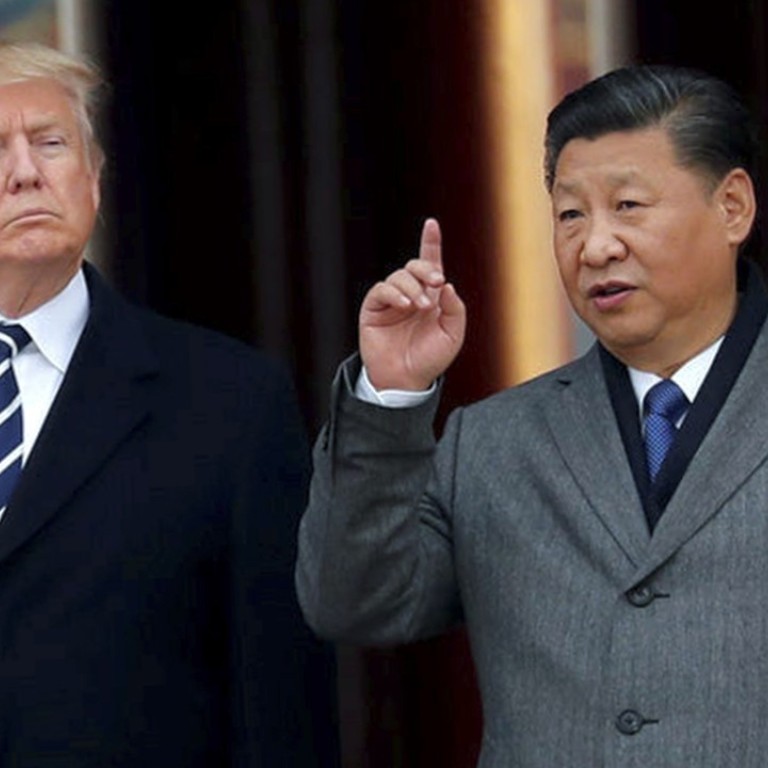
Meet Xi Jinping’s G20 trade talks team: a mix of long-time aides and experienced diplomats
- Some less familiar faces are expected to come to the fore during China’s meetings in Buenos Aires
- Vice-Premier Liu He, China’s point man in trade talks with the US, will remain front and centre
As Chinese President Xi Jinping met his US counterpart Donald Trump in Buenos Aires on Saturday in hopes of strike a deal to ease the trade war, he was flanked by veteran diplomats and trusted aides who form the backbone of a team that helps him run the world’s second-largest economy.
These men were sitting with Xi facing Trump and his team on Saturday. Many of their counterparts are known for their hawkish stance and the gap between sides is considerable, although they have also indicated the possibility of a truce to prevent the trade war from escalating.
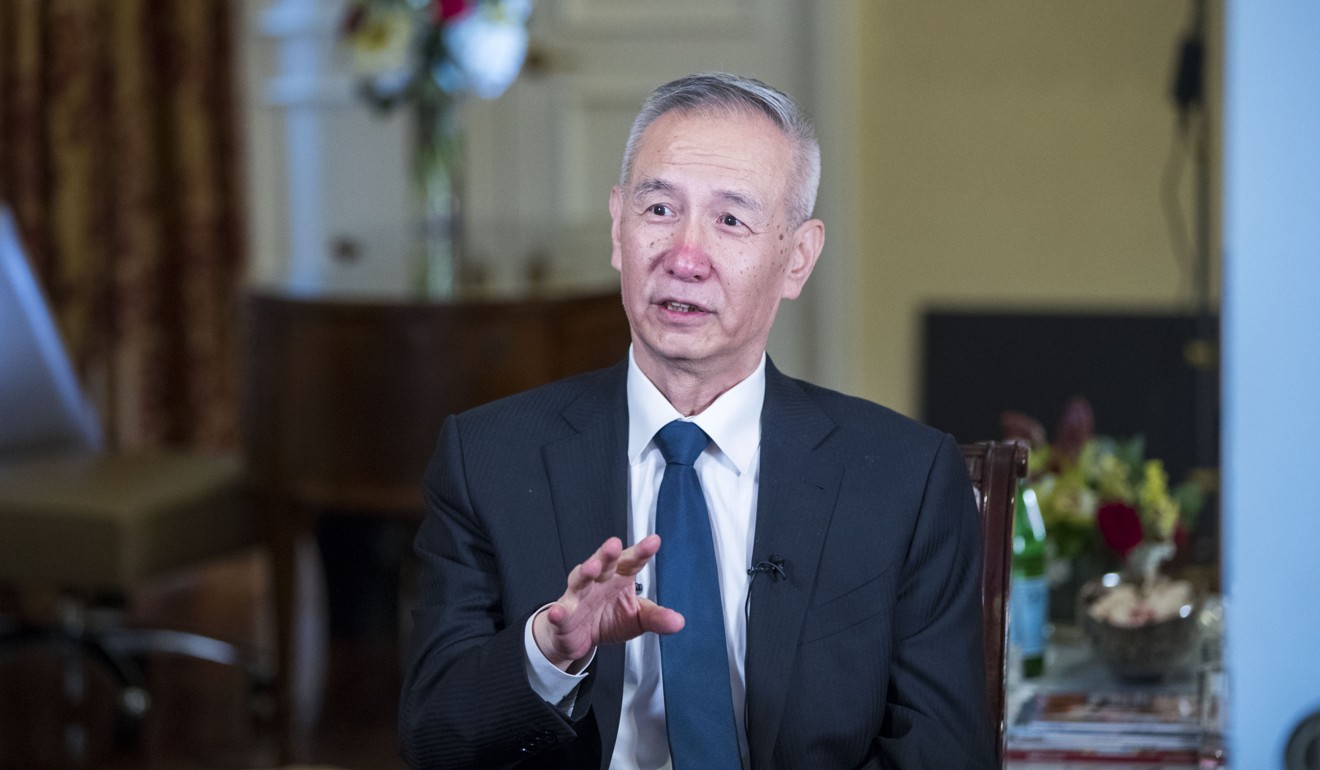
The long-awaited bilateral meeting convened at 5:30pm, local time, an hour earlier than originally planned because of last-minute changes made in response to the death of former US president George H.W. Bush.
Trump also tweeted that he would not hold a press conference on the outcome of his G20 meetings until after Bush’s funeral.
Some of the familiar faces for Xi’s top-level summits in the past, such as Wang Huning and Li Zhanshu, will not be with the Chinese president after they were elevated to the Politburo Standing Committee, so it is likely some lesser-known aides will come to the fore.
The Economic Team
Liu He, vice-premier
Liu is China’s point man in trade talks with the US. In March and May, he led delegations to the US to defuse the threat of a trade war. When he returned to China after the May visit, followed by a trip by the US delegation, Liu said consensus had been reached and there was a brief truce. However, trade tensions continued to escalate as the US implemented tariffs on Chinese goods in early July, and announced more tariffs to come on US$200 billion worth of Chinese exports.
The failures have little effect on Xi’s trust in Liu. The agency he heads – the General Office for the Central Financial and Economic Affairs Commission – remains the sole body leading the talks.
The powerful commission is directly headed by Xi, with Liu in charge of the general office that runs its daily operations. Liu is the person who put together the team for the trade talks, which he also leads, a source told the South China Morning Post in an earlier report.
Negotiations resumed after a phone call between Xi and Trump in late October. Liu and US Treasury Secretary Steven Mnuchin also spoke by phone on November 9 about a framework for a possible ceasefire.
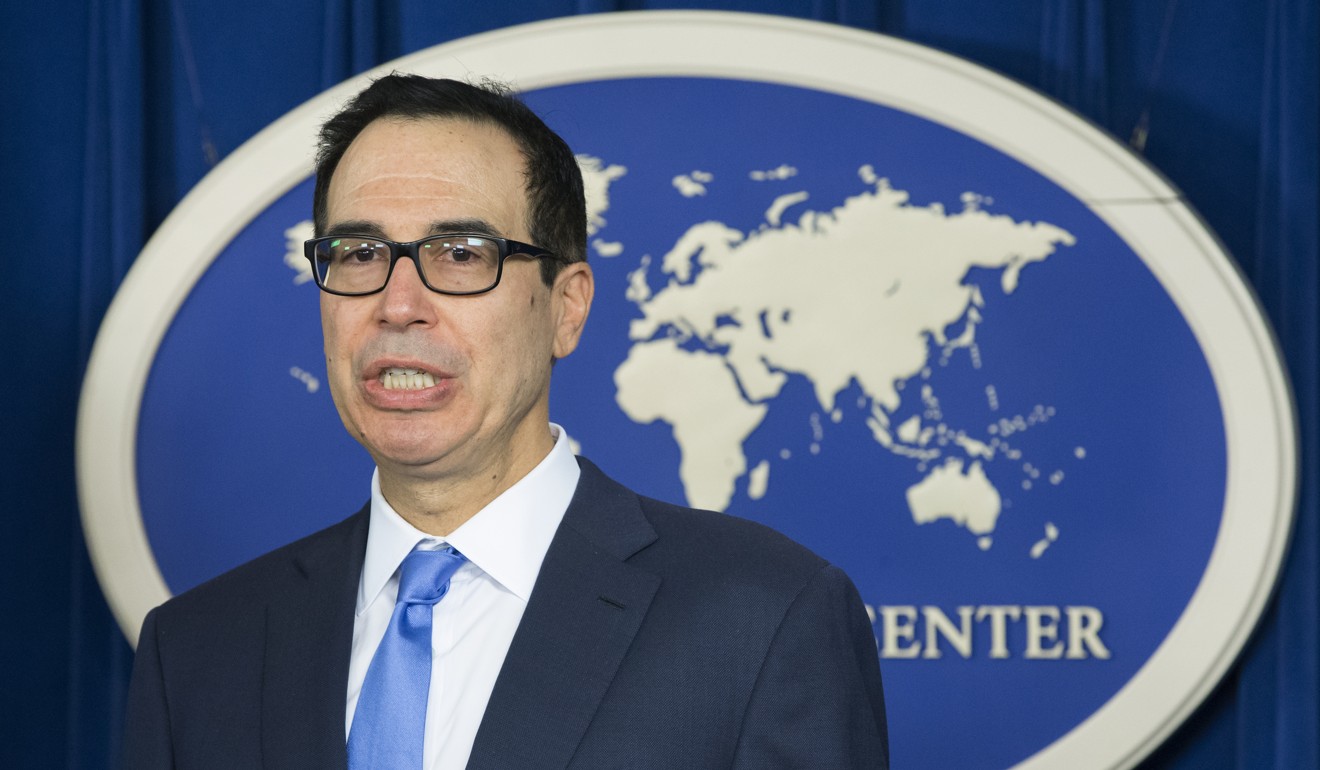
It is well-known that Liu, 66, a Harvard-trained technocrat, is a trusted aide of the president. Xi once referred Liu as “very important to me”. His relationship with Xi reportedly dates back to their teenage years as they went to the same high school. Liu was appointed deputy head of the General Office for the Central Financial and Economic Affairs Commission in 2003, when Xi became vice-president and heir apparent to president Hu Jintao. Since then, Liu has been advising Xi on economic policies.
Even though Liu is only a vice-premier, it is well known that his influence is far larger than that of Premier Li Keqiang, who has been sidelined by Xi.
Liu’s status could hardly be threatened no matter the outcome of Saturday’s talks, but many overseas media reports have been comparing him with previous Chinese point men in China-US trade negotiations, Wang Qishan and Wang Yang. Both Wangs are known for their articulacy, and Wang Qishan’s personal charisma has made him popular among foreign politicians, business leaders and the media. On the contrary, Liu is an intellectual and his skills in tough negotiations are still being tested.
Liu and his team skipped Washington, as planned, and flew to Buenos Aires to talk with the US counterparts ahead of the summit.
He Lifeng, head of the National Development and Reform Commission
He was Xi’s former subordinate and a long-time ally. The 63-year-old and Xi crossed paths in Fujian province, where Xi spent 17 years. The two worked in Xiamen city government together as early as 1985. When Xi became Fujian governor in 2000, he promoted He to party boss of the province’s capital, Fuzhou. A year after Xi became heir apparent and was appointed vice-president, He was promoted to Tianjin as the municipality’s vice-secretary. He was given the responsibility for leading an experimental zone, Binhai New Area, and a state-level district in Tianjin for financial reform.
A year after Xi became president, He was appointed deputy director of the NDRC, which handles China’s major economic and industrial policies. He was promoted to chairman last year.
Well known as one of Xi’s most trusted aides, He has accompanied Xi in both summits with Trump and other overseas trips in recent months.
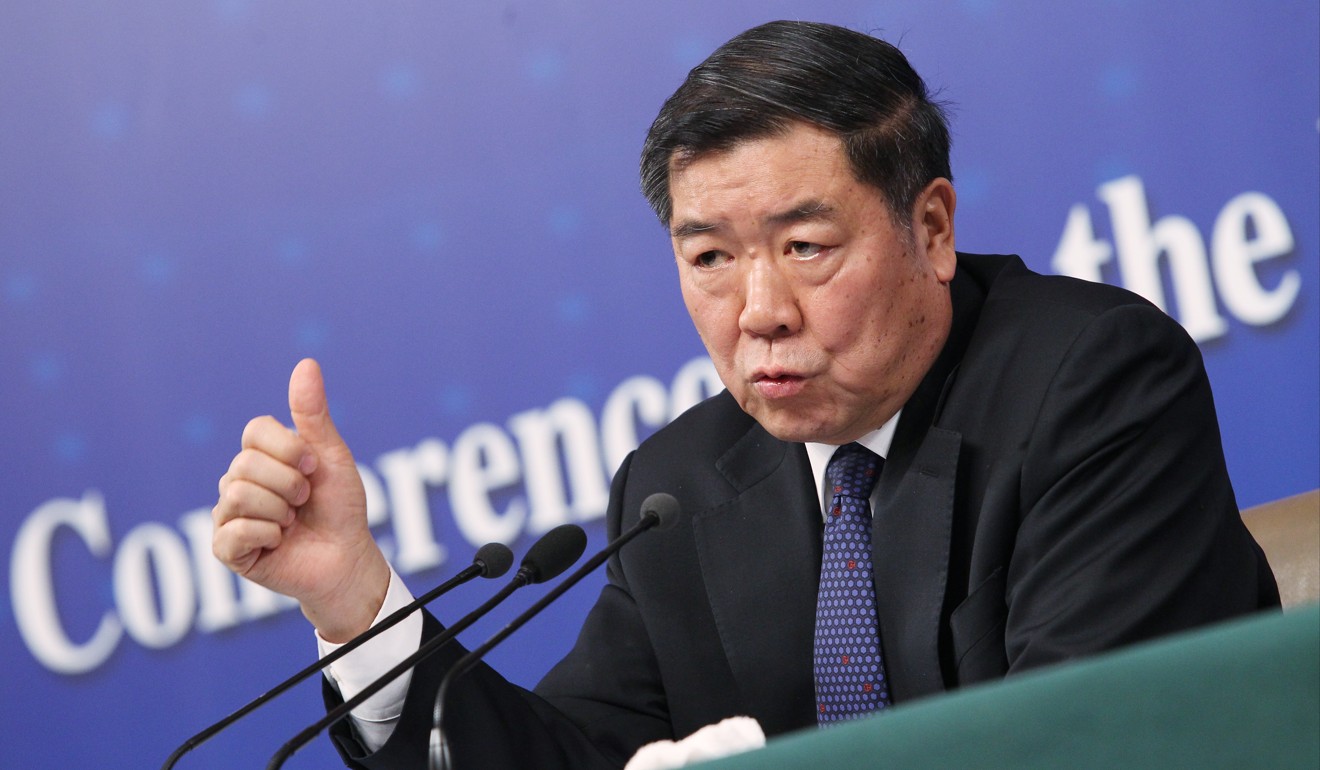
As Xi has dominated in every aspect including economic policies, it is difficult to determine He’s economic philosophy. But since he was deputy head of the planning agency, He took the lead on two of Xi’s pet projects: the “Belt and Road Initiative” and the poverty alleviation campaign.
Zhong Shan, commerce minister
When Xi was Zhejiang governor from 2002 to 2007, Zhong, now 63, was the province’s deputy governor and worked directly under him for nearly five years.
In 2008, when Xi became an heir apparent to Hu Jintao after he was promoted to vice-president, Zhong was transferred from Zhejiang to the commerce ministry as vice-minister. Over the 10 years in the commerce ministry, Zhong has been honing his skills on different fronts, and he has a portfolio of handling multilateral negotiations such as free-trade areas and the Regional Comprehensive Economic Partnership, Europe and Asia relations, as well as foreign trade.
Since 2010, Zhong has been one of China’s representatives in international trade talks. He was part of Xi’s entourage to Mar-a-Lago in April last year and received Trump and his team in November 2017.
In his earlier days in Zhejiang, Zhong was in charge of a state enterprise specialising in textile imports before being promoted to lead the province’s bureau on foreign trade and investment.
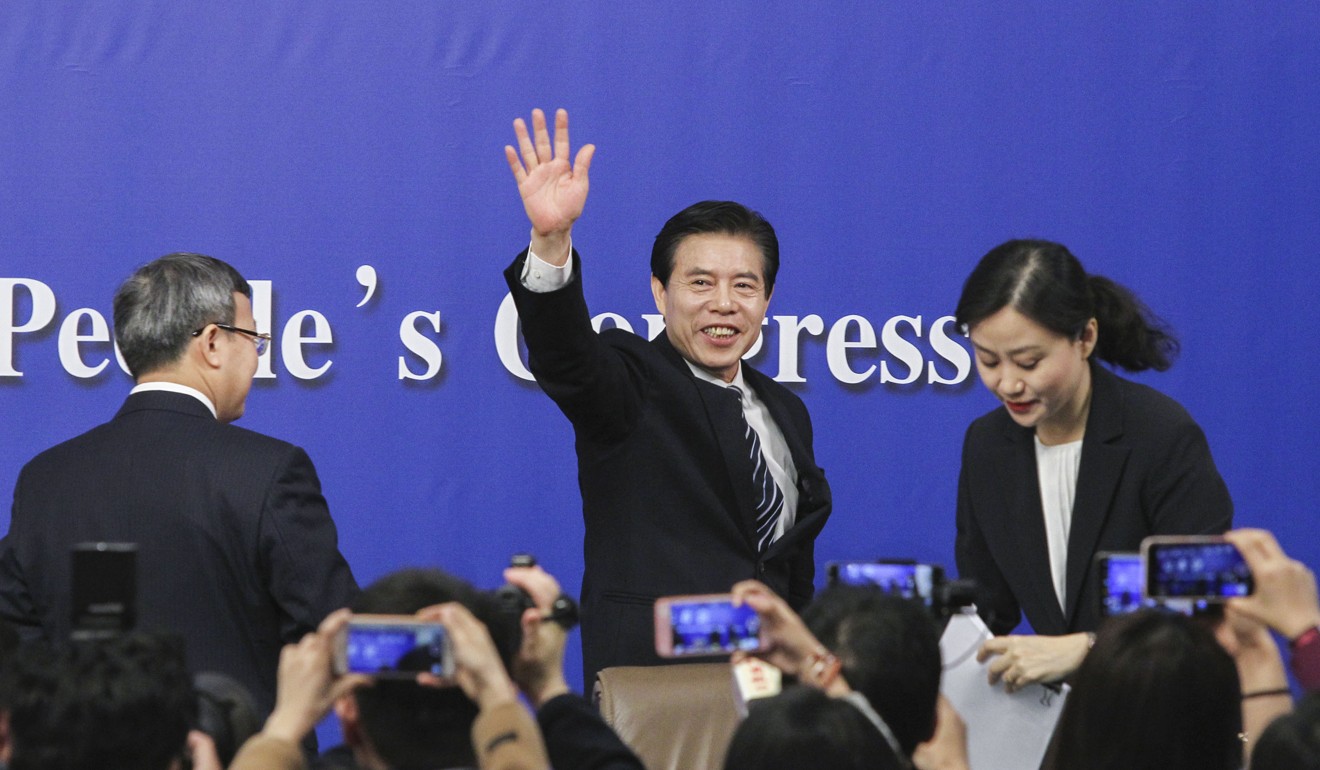
The Diplomatic Team
Yang Jiechi, director of the secretariat of the Communist Party’s Central Leading Group on Foreign Affairs
Yang, 68, is the highest ranking diplomat in the Communist Party after he was promoted to the powerful 25-strong Politburo last year.
From 1998 until late 2017, there were no diplomats in the party’s Politburo, and state councillor was the most senior rank a diplomat could achieve.
The promotion of Yang gives him the authority to coordinate party and government agencies handling China’s foreign relations, such as the commerce ministry and the party’s international liaison department, an agency that manages overseas party relations, especially with North Korea.
He is also the director of the secretariat of the party’s Central Leading Group on Foreign Affairs, which runs the day-to-day operations of the highest decision-making body of Chinese foreign policy.
Yang is an expert in China-US relations and spent much of his professional life in the United States, where he served as Chinese ambassador from 2001 to 2004.
Known for his personal connections to the Bush family, Yang has played a pivotal role in helping steady often bumpy ties between the two countries, especially during sensitive periods over the past decade.
He also took credit for establishing a personal rapport between Xi and Trump, and bringing an end to China’s 10-week border stand-off with India.
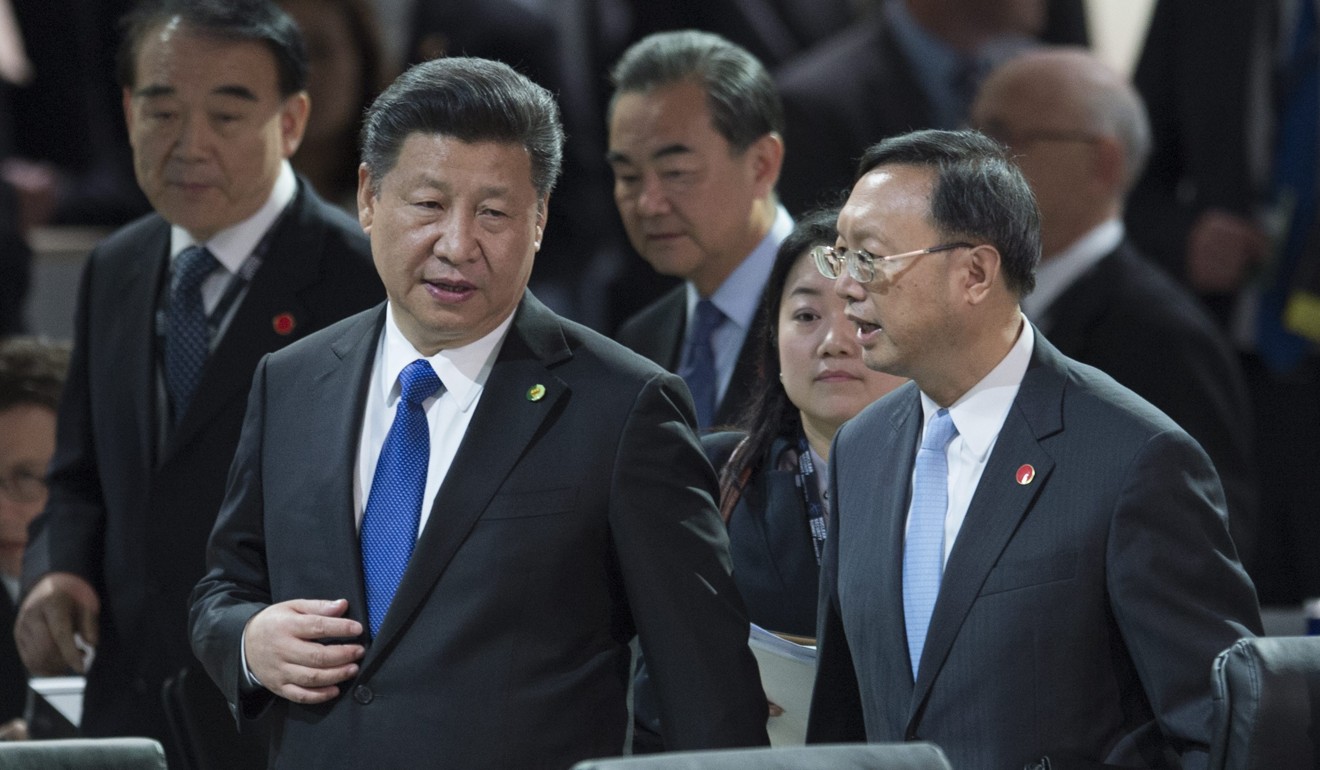
Yang Jiechi is also believed, with the help of his younger brother Yang Jiemian, a strategic affairs scholar and former president of the Shanghai Institutes for International Studies, to have coined one of Xi’s favourite catchphrases – the “new type of major power relations”.
During a meeting with US national security adviser John Bolton at the White House in November, Yang said the two countries had to properly manage their differences to ensure the effectiveness of talks between Xi and Trump in Buenos Aires.
Wang Yi, state councillor and foreign minister
Wang Yi, 65, became foreign minister when Xi’s administration began in 2013. A lifetime diplomat, he is an expert on Japan and was ambassador to Tokyo between 2004 and 2007.
Wang is known for his defiant stance in world affairs. A recent example was his remark after Apec leaders had to reach a consensus on a joint statement to wrap up their economic dialogue in Port Moresby, Papua New Guinea, several weeks ago.
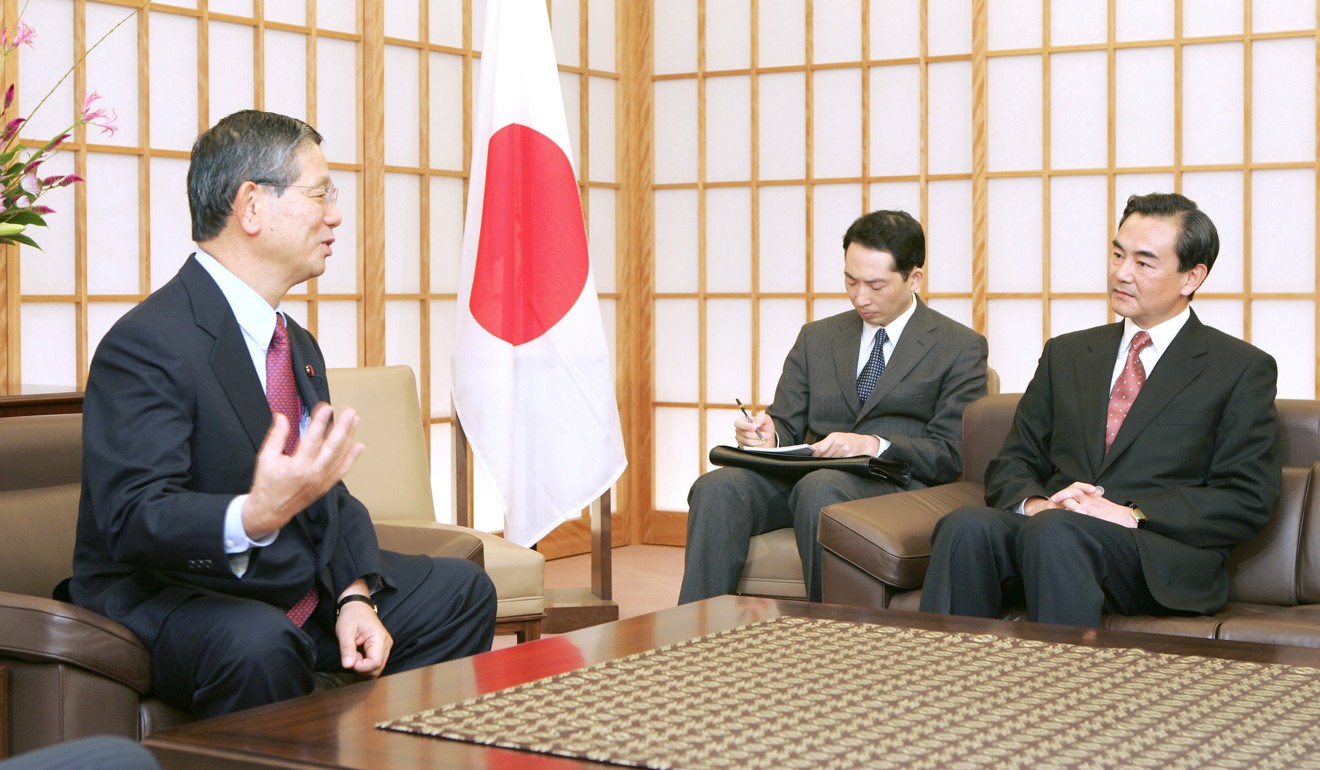
Some countries had “insisted on imposing their own text”, he said. His statement followed Xi and US Vice-President Mike Pence’s exchange of barbs at the summit over trade practices and their countries’ increasingly geopolitical rivalry.
Wang suggested there was an issue with the US, although he did not name a country.
He was promoted to the status of state councillor last year, a move analysts believe gave the Ministry of Foreign Affairs seniority and brought Wang the clout to mobilise other departments.
In July, Wang mocked US trade complaints as “perplexing”.
“The US often says that it is taken advantage of, but this is perplexing. It’s like someone who buys a hundred-dollar product in a supermarket, has the product in hand, and then complains that he is a hundred dollars short,” Wang said. “Does that logic stand up?”
Cui Tiankai, Chinese ambassador to the US
The 66-year-old had reached retirement last year but stayed on apparently to help stabilise the rocky China-US relations that have developed under Trump’s administration.
Cui has been ambassador to the US since 2013. In the first few months after Trump’s inauguration, when China was confused about contacts in the new administration, Cui tried to build cosy relations with Trump’s daughter Ivanka and son-in-law, Jared Kushner. Ivanka Trump also broke the ice by visiting the Chinese embassy for its New Year party in February.
In the past year, Cui has continued to engage many levels of officials in the Trump administration, as well as being the face of China at public events and a spokesman to US media.
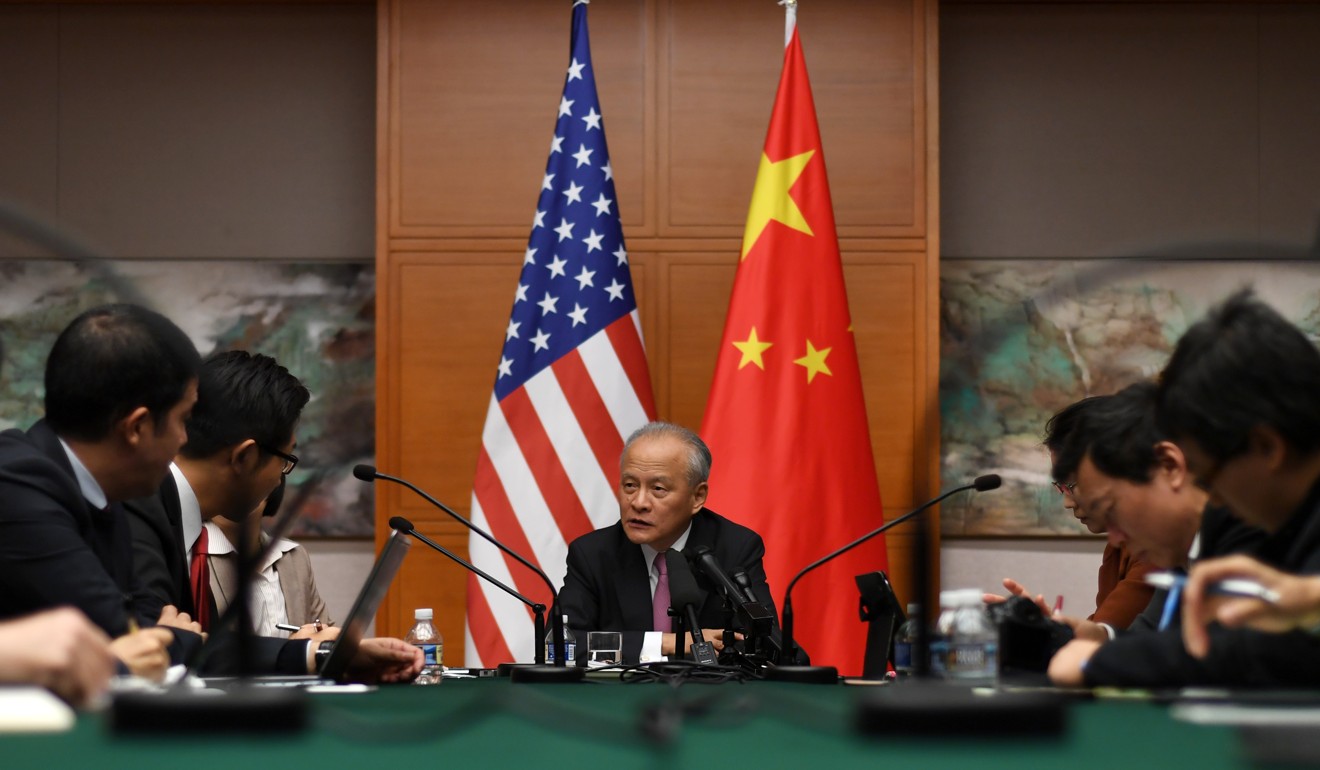
Former US diplomat Robert Daly has described Cui as well respected in the US and as an “extremely effective” ambassador, a valued interlocutor and a voice that is sought out in discussions around Washington.
Ding Xuexiang, director of the General Office of the Communist Party of China
Ding, 56, is Xi’s personal assistant and has extensive experience in assisting Xi for more than a decade. He was Xi’s secretary during the six months when Xi was Shanghai party boss in 2007.
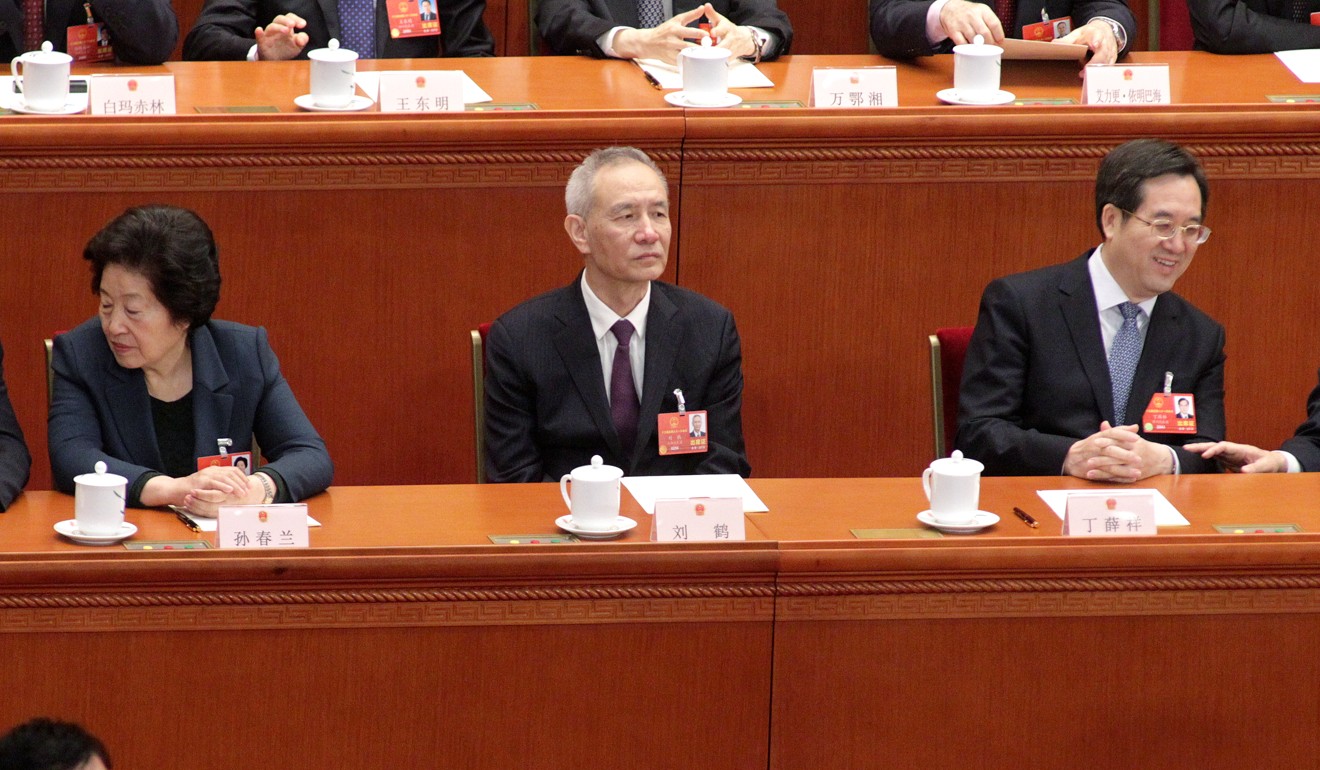
After Xi was promoted to the Politburo Standing Committee, he transferred Ding to the General Office as deputy director.
When Xi became president, Ding became director of Xi’s personal office and has since accompanied him on many of his foreign and domestic trips.
With additional reporting by Zhou Xin.

